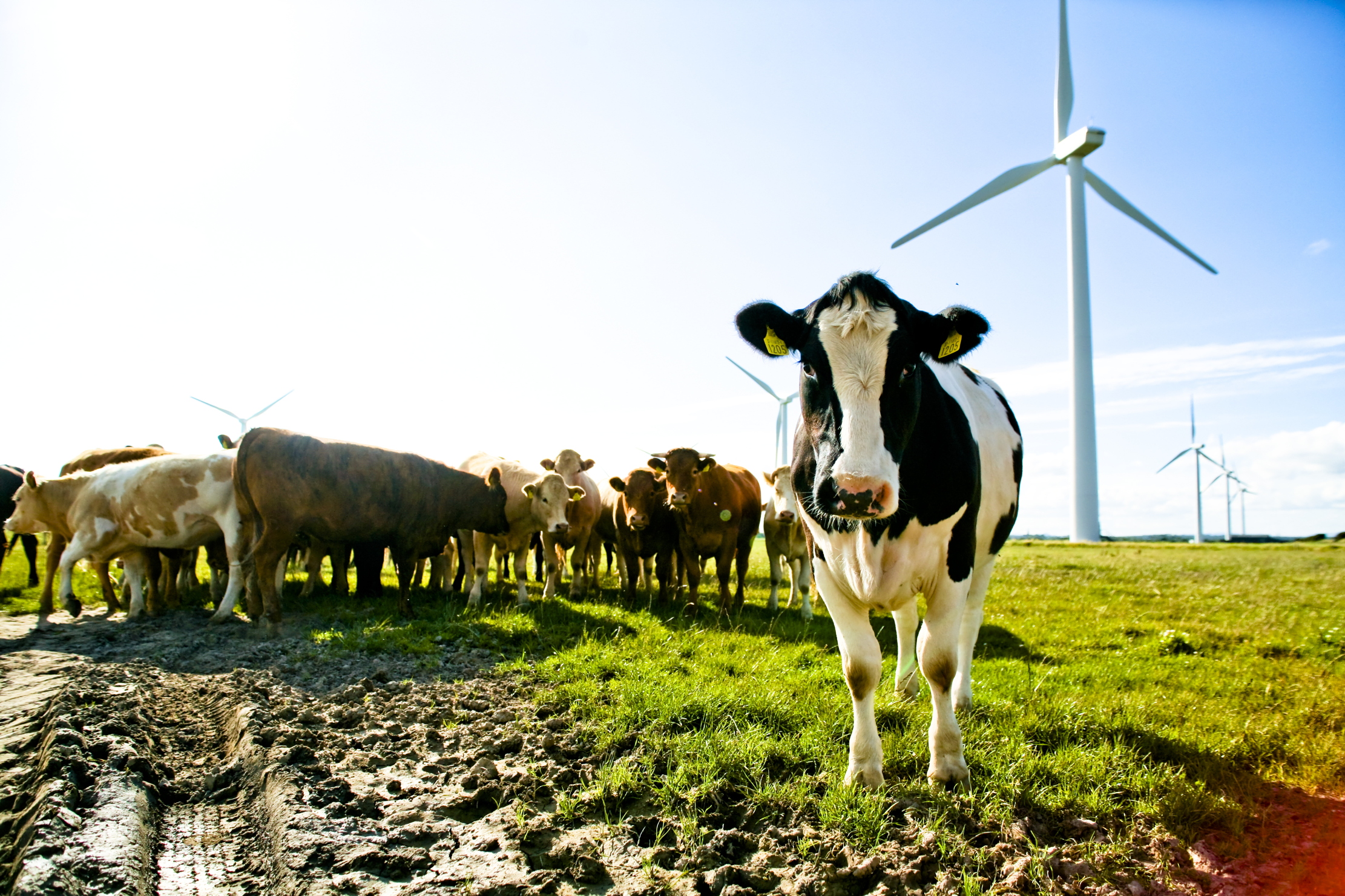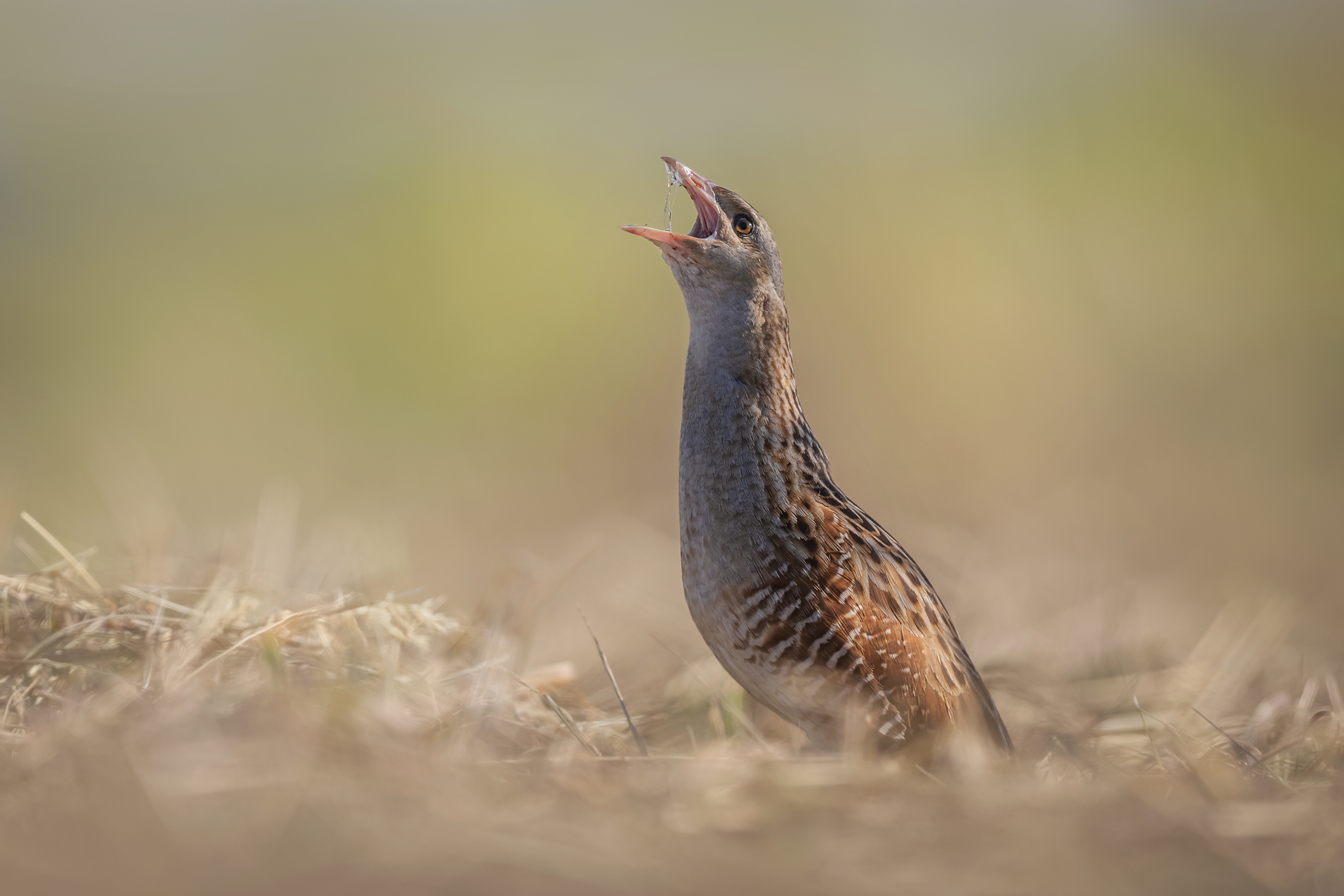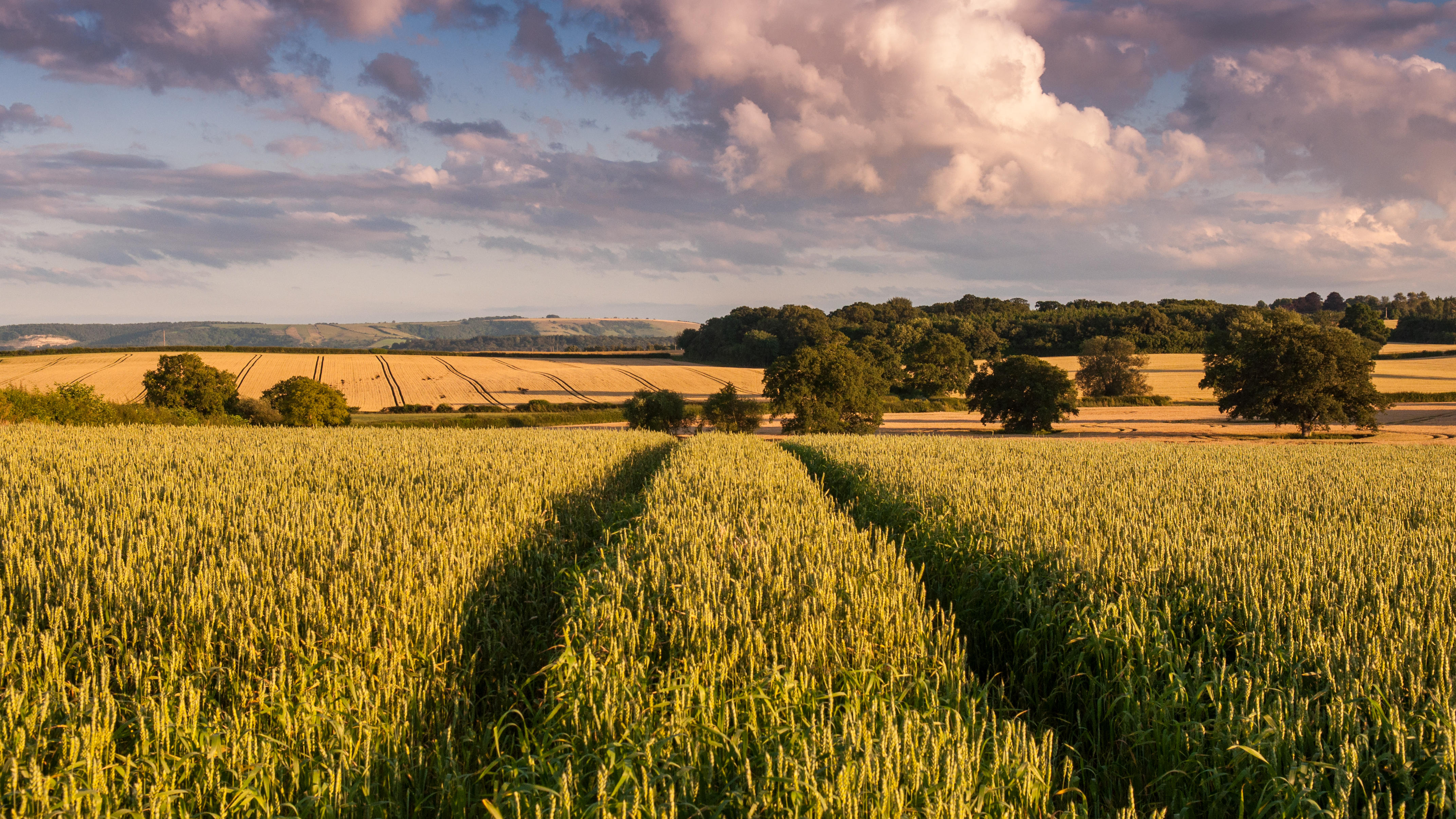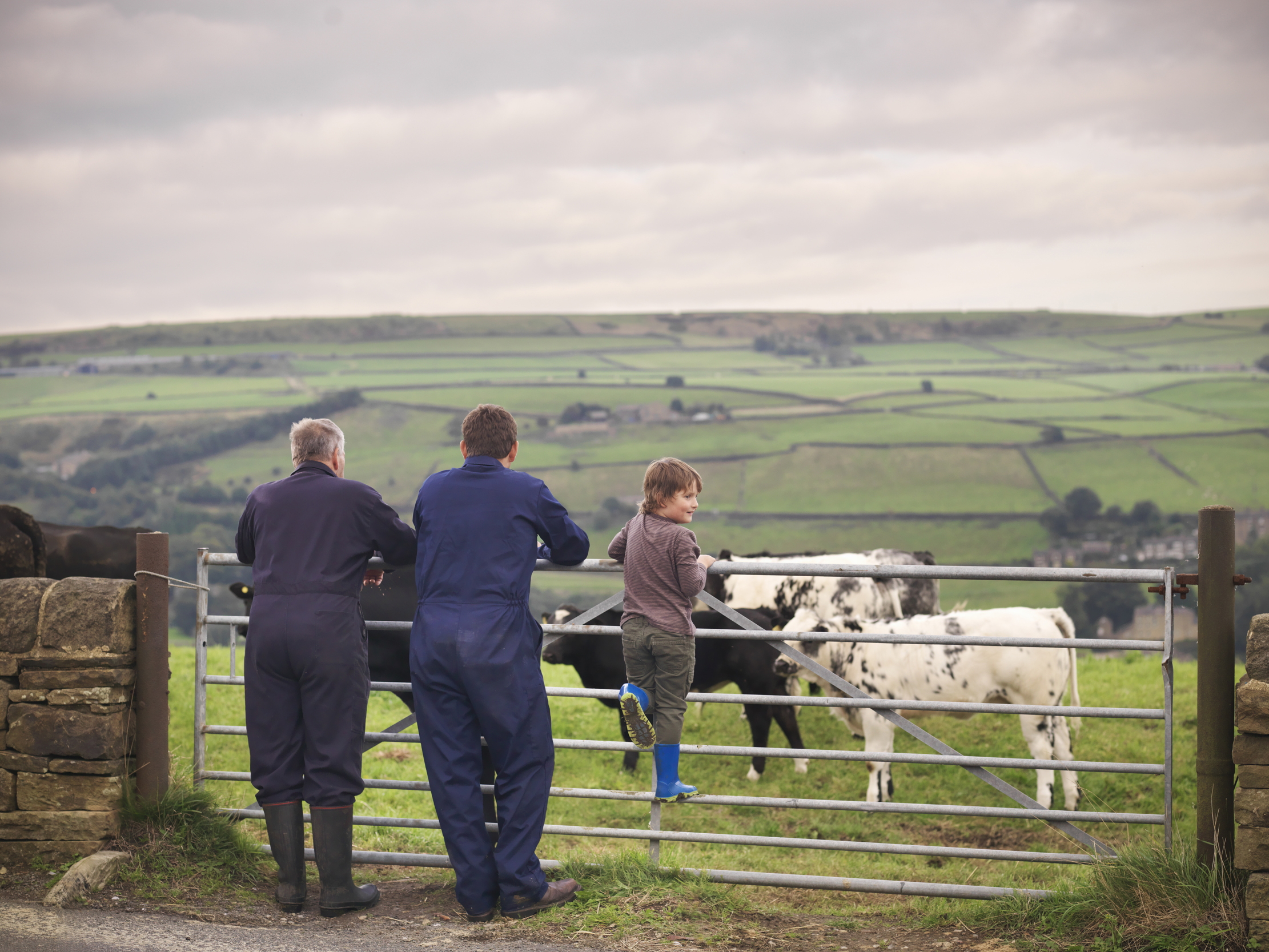Agromenes: 'It is one thing when people recognise what is the right thing to do, but it becomes really game-changing when they see that it’s also the profitable thing to do'
The Countryside Crusader celebrates more positive news about regenerative farming.


So often, news from the countryside is a story of loss: of biodiversity, of storm damage or of farmers’ income. This year is no exception; it is already clear that the harvest was the second worst we’ve ever had in the UK, with yields of wheat, barley and oats down by 15% overall. However, the exclusive concentration on loss, failure and the wide range of threats to our future is doing us country people no good. That is why Agromenes is continuing his crusade to remind us that there is much for which to be grateful and a surprising amount of good news to celebrate.
The current concerns about mental health and the record numbers of people unable to work because of stress would be much alleviated if the focus was shifted to concentrate more determinedly on the good news and emphasising the positive. The British press, desperate for readers, seems to think that only gloom and misery sells. Even the BBC is caught up in this round of depression. It first ‘welcomed’ the news of the closure of Britain’s last coal-fired power station, not by celebrating the cleaner air, the cheaper renewable energy, the fewer lives cut short by silicosis and the large number of new green jobs, but by concentrating on job losses, pit closures and the unchallenged nostalgia of a few individuals living in Ratcliffe-on-Soar.
Given that attitude, it is not surprising that many will have missed this week’s good news. Those of us who have been championing regenerative farming to recover biodiversity, increase soil fertility and produce better and healthier food will be cheering a major new report funded by giant food manufacturer Nestlé and produced by the Global Alliance for the Future of Food. It shows that farmers using regenerative methods can expect increases in their incomes of up to 49%; this is thanks to not needing ever more expensive inputs and being able to use local markets to fulfil growing demand from schools, hospitals and businesses for better, healthier products without excessive packaging and carbon-intensive food miles. It is one thing when people recognise what is the right thing to do, but it becomes really game-changing when they see that it’s also the profitable thing to do.
That is what’s so encouraging about another piece of news. The huge multinational company Pepsi is showing the way in reducing the harm done by unhealthy snacks. Not only has it launched new lines of Walkers’ lower-salt crisps, but it has entirely reformulated the Doritos brand, all at a cost of $217 million (about £166 million). That’s a pretty big risk, given that it rakes in a whopping $91 billion (about £70 billion a year). The early trials look good, with 91% of respondents liking the bold flavour and texture. It’s a thumbs up, too, to both this and the previous Government, because new regulations have helped to push the reform that the obesity crisis makes so necessary.
Last week’s good news didn’t end there. Remember all those miserable stories about how we should all become vegan because of climate change? Plant-based food wasn’t enough for some extreme campaigners — they were demanding a diet centred around fungi. Sensible commentators fighting global heating were put on the back foot by these vegan campaigners dominating the climate story. Now, the latest science reveals that cows enable the land to sequestrate one-third more carbon. Regenerative farmers know the importance of mixed farming, where livestock plays an important role in working the land and manuring the soil. This, combined with new feeding systems that reduce methane burping, means that beef, albeit in smaller portions and regeneratively produced, is back on the menu.
Agromenes is Country Life’s Countryside Crusader. He writes a column weekly.

Credit: Getty Images/500px
Sign up for the Country Life Newsletter
Exquisite houses, the beauty of Nature, and how to get the most from your life, straight to your inbox.
Agromenes: From the big things to the little things, there are plenty of reasons to be cheerful
Our Countryside Crusader refuses to be melancholy as the autumn rolls in. Instead, he reveals plenty to be happy about.

Credit: Getty
Agromenes: The new government is already delivering with aplomb — and in the countryside, it's all to play for
Our countryside columnist takes a look at the early efforts and impressive ministerial appointments of the new Labour government in

Credit: Alamy Stock Photo
Agromenes: The terrible warnings which must make us take food self-sufficiency seriously again
Country Life's agriculture columnist Agromenes on why we need to learn the lessons of the tragic events of the last
Country Life is unlike any other magazine: the only glossy weekly on the newsstand and the only magazine that has been guest-edited by HRH The King not once, but twice. It is a celebration of modern rural life and all its diverse joys and pleasures — that was first published in Queen Victoria's Diamond Jubilee year. Our eclectic mixture of witty and informative content — from the most up-to-date property news and commentary and a coveted glimpse inside some of the UK's best houses and gardens, to gardening, the arts and interior design, written by experts in their field — still cannot be found in print or online, anywhere else.
-
 Agromenes: A budget of betrayal
Agromenes: A budget of betrayalLabour has turned it's back on the farming community with its latest plans on Agricultural Property Relief.
By James Fisher
-
 'It all looked too good to be true — and, indeed, it was': We must face up to the real future of farming
'It all looked too good to be true — and, indeed, it was': We must face up to the real future of farmingAn over-reliance on fertilisers and yields has left our farmland in a perilous state. It's only by working with nature, not against it, that we can futureproof our countryside.
By Country Life

